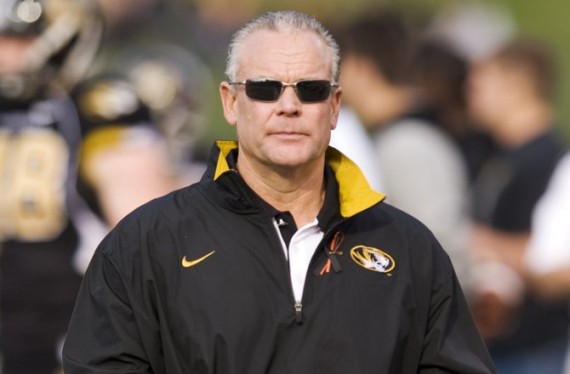Fans, bloggers, pundits — all of us — easily recognize head coaches.
On a national level — beyond the realm of the local beat writer or the team-specific specialist — the people who cover college football from a distance will more immediately identify the face of a head coach than the face of an assistant.
Yet, anyone who has covered football for any length of time knows that in this sport, coaching matters most. Great coaches generally do not exist on an island, surrounded by mediocre coordinators or position coaches. Quality teaching, quality scheming, quality personnel and endgame management, flow through a whole coaching staff. The greatest head coaches surround themselves with able assistants; create an environment in which those assistants then get head coaching jobs of their own; and then replenish their staffs with equally talented assistants.
It’s one of the most fascinating and revealing dimensions of every college football season: Which assistants assist(ed) the most? Which head coaches become surprisingly vulnerable without the right assistant at an important spot on their staffs? Which head coaches remain hamstrung by remaining tethered to certain assistants who just aren’t as good as previously thought?
In 2015, we’re going to get answers to these basic questions at several schools. Let’s start with the person shown in the cover photo above.
*
Recognize that assistant coach? Missouri fans do, but what if we conducted a survey of fans across the nation, especially those outside the SEC or the St. Louis and Kansas City metro areas? Would you be able to look at that photo and say, “Oh, sure, that’s former Mizzou defensive coordinator Dave Steckel, brother of former Minnesota Viking head coach Les Steckel”?
Dave Steckel is the man responsible for turning the Mizzou crew into an SEC: a Sacking & Eating Committee. The Tigers gobbled up opposing quarterbacks and caused enough havoc on defense the past two years to support an erratic offense. The Tigers’ defense was the backbone of consecutive 7-1 SEC regular seasons and back-to-back SEC East titles. With Steckel now the head coach at Missouri State in the FCS, how will the next man up — Barry Odom — help Gary Pinkel?
We’re all waiting to find out.
At Ohio State, some might be worried about the performance of the offense, in light of the fact that former Urban Meyer assistant Tom Herman is now the head coach at Houston. Some Ohio State fans are worried about Tim Beck, newly brought on to help with the offense this season. However, you’re not going to encounter too many anxious Buckeye backers this year, because Ed Warinner — improbably not yet snatched away by a lower-tier Power 5 school — is still in the fold. Warinner should enable the Buckeyes’ offense to purr at a steady pace this season. When he does go (and one would have to think another program will land him before the College Football Playoff semifinals this year), then the Buckeyes might become a little bit more worried about the future of their offense.
At USC, lost in the whirlwind of Steve Sarkisian news and speculation, lies the fact that Justin Wilcox — the defensive coordinator who accompanied Sark to Los Angeles from the University of Washington — has never really replicated what he did at Boise State. Wilcox was supposed to be a next-level defensive coordinator, but that hasn’t turned out to be the case. USC’s season won’t be pivotal for Sarkisian’s career alone; it is also a huge moment for Wilcox as well. If the Trojans’ defense fails this season, Wilcox’s days as a Power 5 defensive coordinator might be over. At best, he could remain a defensive coordinator only at a lower-tier Power 5 program. If he wanted to remain at an elite Power 5 school, he’d probably have to become a position coach… at least for a few years.
*
Other situations exist in which programs have sought out high-profile college coaches or NFL coordinators to be highly-paid assistants. Auburn’s selection of Will Muschamp as its defensive coordinator is example number one in this regard. The Tigers are hoping Muschamp creates a defense robust enough to supplement Gus Malzahn’s play-calling wizardry on offense. At Georgia, Mark Richt replaced Mike Bobo with a man who is unlikely to deviate from a run-first approach, former NFL offensive coordinator Brian Schottenheimer. If different approaches work for these two SEC schools in 2015, the head coaches will deserve credit — not necessarily for their own coaching acumen, but for hiring the right men to help them out. (This last sentence-cum-principle can generally be called the Gene Chizik-Dabo Swinney Rule. Those two men won big in large part because they hired the right coordinators at the right time.)
One other very specific situation worth mentioning in terms of assistants providing crucial assistance to head coaches can be found in the Pac-12. Gary Andersen moved to Oregon State from Wisconsin. He managed to lure Kalani Sitake from Utah as his new defensive coordinator. Ilaisa Tuiaki joined Sitake in leaving Utah to go to Corvallis. Tuiaki will be Oregon State’s defensive line coach when the season kicks off later this week.
Utah head coach Kyle Whittingham is a defense-focused coach, so it’s reasonable to think that the Utes — whose problems have existed mostly on offense the past several years — won’t be hit too hard. However, if Oregon State derives all the benefits Utah lost as a result of this two-assistant switch within a conference, it remains that Utah’s overall collection of resources and assets will have been diminished.
*
Which assistants assist the most? We’re ready to find out yet again, as another college football season blessedly greets us.
